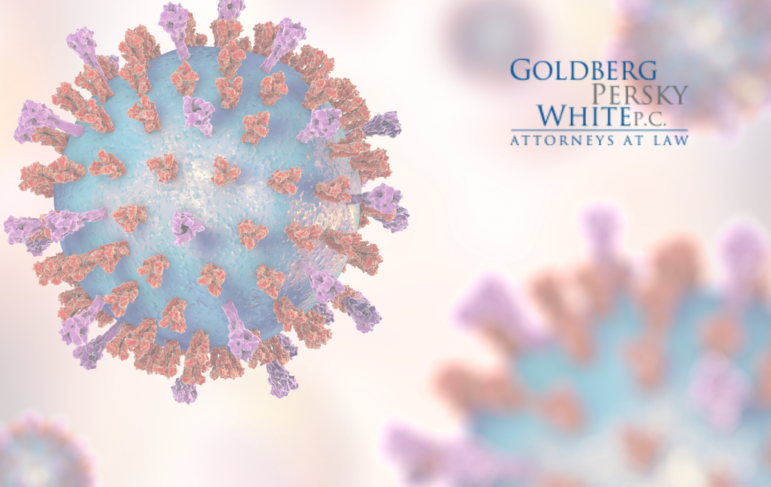COVID-19 Impacts People with Mesothelioma
The coronavirus outbreak has had a massive ripple effect throughout the United States, and mesothelioma patients are caught in it.
The spread and fear of COVID-19, has led to event cancellations and international travel restrictions. People with mesothelioma should continue to be especially cautious. The current state of their health and immune system leaves additional vulnerabilities to the worst of the COVID-19. We also understand that mesothelioma patients may have further concerns about how the COVID-19 can impact you.
Why Mesothelioma Patients Are at Risk of COVID-19
The Centers for Disease Control and Prevention (CDC) said people with respiratory ailments or diseases are in particular danger. According to the organization, people who have lung disease are at a higher risk of getting a severe case of COVID-19. COVID-19 is a respiratory illness, similar to the flu or common cold. The virus targets your lung, where the disease then replicates over and over until it overwhelms the lung’s otherwise-healthy cells. Mesothelioma often develops in the lining of the lung cavity. This form of mesothelioma is called pleural mesothelioma, and the disease often spreads to the lungs and other parts of the thorax. A pleural mesothelioma patient’s immune system is already struggling and lungs are already full of diseased cells. Contracting COVID-19, in addition to having mesothelioma, can overwhelm the patient’s body. The results could include lung swelling, cellular or fluid waste, cellular growth in the lining of the air sacs, and irregularly giant cells.
How Do I Stay Away From COVID-19 as a Mesothelioma Patient?
Here are a few steps you, as a patient, can take to stay far away from this disease:
- Avoid large crowds: Many organizations are continuing to cancel events with large crowds, including professional sporting events and political rallies. Since the disease is contagious, many people become infected due to being at an event and near someone with the virus.
- Don’t travel by air or public transportation: We recommend avoiding airplanes, trains, subways, buses and other forms of travel where you’ll be in a large crowd. Car trips should be OK, but prioritize cleanliness and social distancing. If you have treatment scheduled outside of your hometown, attempt to have it moved to a local facility.
- Consider delaying in-person doctor visits: If you’re not on active treatment, then you shouldn’t risk going to a place where infected people may be present. Also, you can reduce the stress on hospital staff. If you have any questions or concerns, call the doctor’s office and ask to speak with the nurse.
- Don’t touch your face, eyes or mouth: Coronavirus can enter your body even if an infected person doesn’t cough or sneeze on you. The disease can live on surfaces, which you may touch without thinking twice. If so, then you can deliver the virus into your body with the touch of your hand or fingers.
- Wash your hands often and effectively: Use soap and water for at least 20 seconds each time. Do this before eating, after touching surfaces in public (including door handles, railings and more), and after using the bathroom.
- Clean and disinfect regularly touched objects and surfaces: These items could include anything from basic household appliances to countertops. They are easily infected, and the virus can transfer from the object or surface to your hands.
- Respond to symptoms immediately: Consult with your doctor if you show any coronavirus symptoms. Get tested as soon as you can.
- Protect against other viruses: COVID-19 isn’t the only disease that can affect mesothelioma patients. As a precaution, consider getting vaccinated for influenza.
Similarities Between Mesothelioma and Coronavirus
Aside from both affecting the lungs, mesothelioma and the COVID-19 have other similarities. COVID-19 causes flu-like symptoms, such as coughing, fever, fatigue, sore throat, shortness of breath and trouble breathing. These symptoms also apply to mesothelioma. Pleural mesothelioma, in particular, often leads to shortness of breath. COVID-19 and mesothelioma are also alike in whom they can affect. Any person can develop either disease.
COVID-19 is contagious and spreads easily from person to person. The spread of this coronavirus occurs from droplets emitted when an infected person coughs or sneezes. These virus-containing droplets can then enter your body through the nose or mouth.
Mesothelioma is not contagious and only forms due to asbestos exposure. However, this characteristic also means anyone who comes into contact with asbestos is in jeopardy.
Do you have cancer due to where you worked in the past? You could be entitled to compensation. Call us at 412-471-3980 or fill out our contact form to have one of our attorneys review your case.
Sources:




